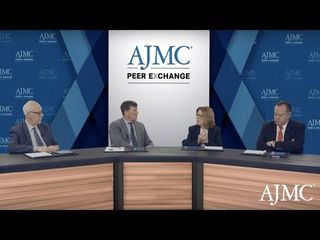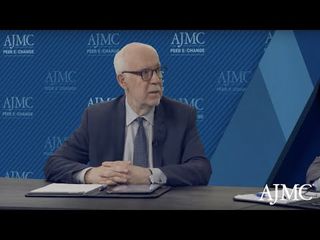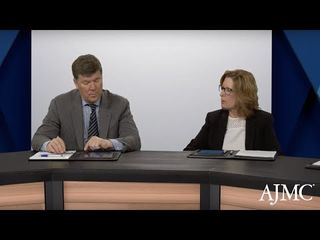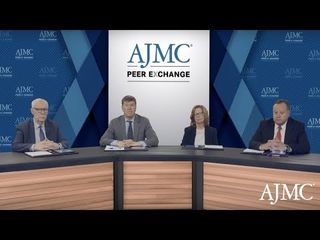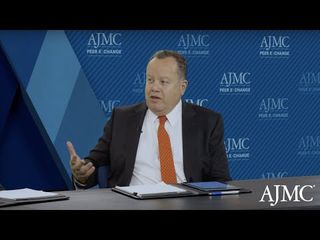
Hematology
Latest News
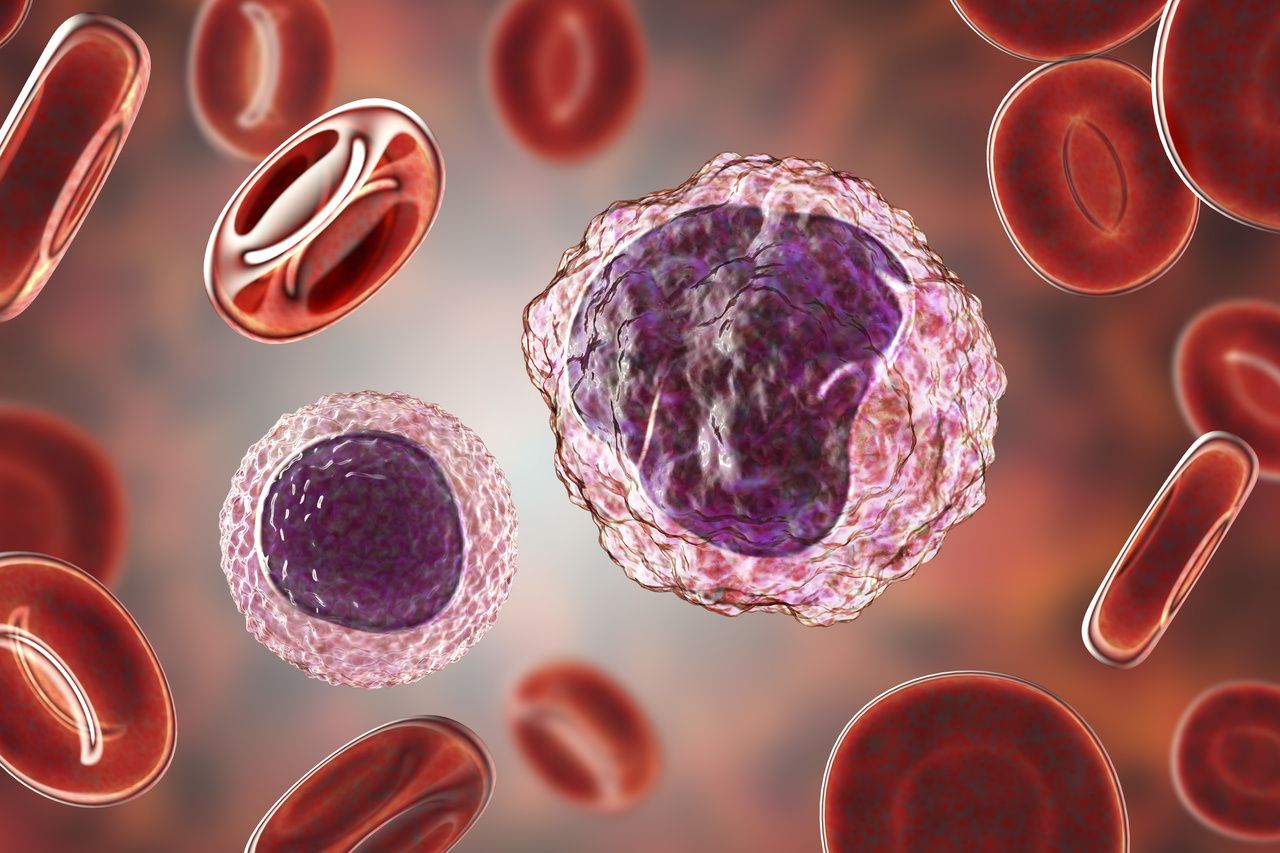
Latest Videos

CME Content
More News

Patients with high-risk multiple myeloma tend to have significantly worse prognoses compared to those in the standard-risk category. A new study offers a potential solution.

I am type O negative. There are only 7% of us in the United States. My blood is red gold, if you will. I am a universal donor, which means that my blood can go to anyone.

Newly diagnosed patients with multiple myeloma (MM) who are transplant-ineligible sometimes plan fixed-duration therapy to improve their quality of life. A new study examines the impact of that approach.

Some patients with cancer are more vulnerable than others, said Jeffrey Patton, MD, acting chief executive officer and president of physician services of OneOncology, as well as chief executive office of Tennessee Oncology, which is down to its last 14-day supply of personal protective equipment.

In adolescent patients with sickle cell disease, hydroxycarbamide therapy was associated with improvements in neurocognition variables such as working memory, verbal memory, and nonverbal IQ, according to study findings.

There are studies exhibiting progression within treatment for smoldering multiple myeloma, but nothing has been FDA approved yet, said Elisabet Manasanch, MD, assistant professor in the Department of Lymphoma/Myeloma and Division of Cancer Medicine at The University of Texas MD Anderson Cancer Center.

When patients present to the emergency department (ED) with sickle cell disease (SCD)–related pain, they often have been experiencing that pain for days, said C. Patrick Carroll, MD, director of psychiatric services, Sickle Cell Center for Adults, associate professor of psychiatry, Johns Hopkins Medicine.

In children and adolescents with sickle cell disease, those who lacked ample vitamin D were hospitalized more often, had longer hospital stays, and made more frequent visits to the emergency department, according to study findings.

A year after being only the second person to be cured of HIV, the “London Patient” revealed his identity; BMS announced today that its combination therapy for multiple myeloma—elotuzumab, lenalidomide, and dexamethasone—failed its primary endpoint of progression-free survival in its phase 3 ELOQUENT-1 trial; Biocon and Mylan N.V. announced that the FDA accepted their biologics license application (BLA) for MYL-14020, a proposed biosimilar to bevacizumab (Avastin), for review.

Isatuximab-irfc, sold as Sarclisa, in combination with pomalidomide and dexamethasone, was approved this week by the FDA for the treatment of adults with relapsed refractory multiple myeloma who have received at least 2 prior therapies.

More data is needed to get wider acceptance of the use of palliative care services for patients with blood cancers, said Adam Olszewski, MD, associate professor of medicine at The Warren Alpert Medical School of Brown University.

For patients undergoing allogeneic hematopoietic cell transplantation, higher diversity of intestinal microbiota at the time of neutrophil engraftment was linked with lower mortality, according to study findings published today.

In a major study of a Chinese medical insurance database, investigators found the prevalence and incidence of the disease in China is similar to those of its neighbors, but lower than countries in the West.

Patients with sickle cell disease already face suspicion and biases based on their need for opioids, and African American patients also face additional racial biases, said C. Patrick Carroll, MD, director of psychiatric services, Sickle Cell Center for Adults, associate professor of psychiatry, Johns Hopkins Medicine.
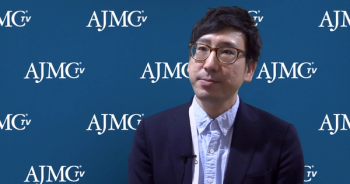
Predicting T-cell toxicity is a key factor when it comes to successfully using CAR T-cell therapy, said Reona Sakemura, MD, PhD, postdoctoral researcher at the Mayo Clinic.

Sickle-cell trait (SCT) and disease (SCD) among African American patients were associated with faster kidney function decline, with SCD contributing to a more rapid decline, according to study findings.
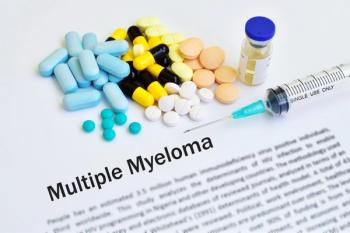
Primary and acquired resistance to bortezomib can increase recurrence rates in patients with multiple myeloma. A new strategy could help reduce resistance.

Dr Adam Olszewski: Early Palliative Care Is Important and Beneficial for Patients With Blood Cancers
Evidence is showing that early palliative care can be beneficial for patients with blood cancers, who receive very intense treatments that impact quality of life, said Adam Olszewski, MD, associate professor of medicine at The Warren Alpert Medical School of Brown University.

Researchers describe results of carfilizomib and bendamustine in a phase 1/2 study.

Based on positive data from the phase 3 CANDOR study presented at the 2019 American Society of Hematology Annual Meeting, Janssen announced yesterday the submission of a supplemental biologics license application to the FDA seeking approval of daratumumab in combination with carfilzomib and dexamethasone for relapsed/refractory multiple myeloma.

Bone marrow derived cancer-associated fibroblasts promote tumor progression which can alter a treatment's course, said Reona Sakemura, MD, PhD, postdoctoral researcher at the Mayo Clinic.

There is not a lot of evidence on how well nonpharmacologic treatments work to treat sickle cell disease–related pain, and it can be difficult to get people access to these treatments, said C. Patrick Carroll, MD, director of psychiatric services, Sickle Cell Center for Adults, associate professor of psychiatry, Johns Hopkins Medicine.

Toxicities like cytokine release syndrome, along with other factors, limit widespread use of CAR T-cell therapies, said Reona Sakemura, MD, PhD, postdoctoral researcher at the Mayo Clinic.

Three proteasome inhibitors (PIs) are approved for patients with multiple myeloma (MM): Bortezomib, a first-in class PI, fights both newly diagnosed and relapsed/refractory MM (RRMM); carfilzomib, a next-generation PI, treats RRMM as both a monotherapy and in combination; and ixazomib, the first oral PI, treats RRMM in combination. PIs work by preventing the proteasomes in cancerous plasma cells from “recycling” what is essentially garbage protein.

Patients had never been particularly enthusiastic about using opioids to treat their pain related to sickle cell disease, but they are more cautious now, especially as they are often meet with suspicion of addiction, said C. Patrick Carroll, MD, director of psychiatric services, Sickle Cell Center for Adults, associate professor of psychiatry, Johns Hopkins Medicine.





